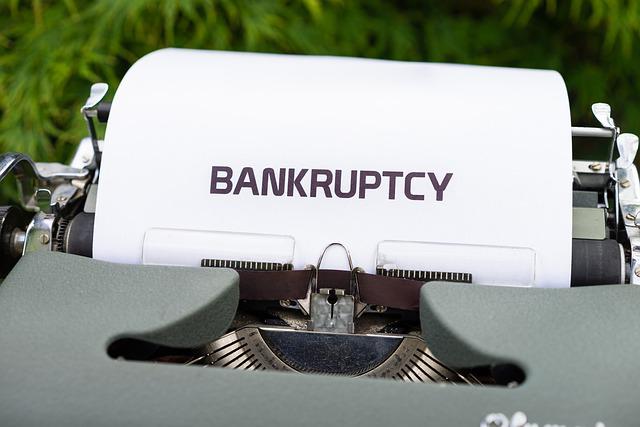The businesses that fell into financial trouble consider Bankruptcy as their only legal way of solution. This particular legal process is often initiated by the debtors and is imposed through court orders.
If you find that bankruptcy is your only way to seek relief from the creditor, then you can go for it. But you also need to keep in mind that Bankruptcy has various chapters, for instance, chapter 7, chapter 11, and chapter13 as well.
If you are willing to file bankruptcy, you must consider the difference between these chapters in it.
What Is Chapter 7 Bankruptcy?
The liquidation of assets takes place to repay the debt. In that case, a company or an individual can file for this particular chapter, and that will be the shutdown of their whole operations and management processes.
You will be able to understand everything from Chapter 7 Bankruptcy about the chapter 7 bankruptcy before you file for it.
The debtors need to liquidate their personal assets, according to this chapter. To fill the debt, the debtor tries to focus on secured loans such as home equity loans, car loans, mortgage loans, et cetera.
After that, if there is still money left for the debtor, they will pay through unsecured loans like credit cards or personal loans. The main benefit of chapter 7 is that they will not get any further repayment plan, and thus they can start anew.
What Is Chapter 11 Bankruptcy?
It is a new process of returning the money to the creditor. The debtors file this chapter to save their assets.
But anyone cannot go for this bankruptcy unless they have sufficient proof to run their business regularly. Chapter 7 bankruptcy in GA works in a different way from chapter 11 bankruptcy.
If you have the ability to run your own business but are facing trouble repaying your debt, then only you will be able to file chapter 11.
In this case, you will need to submit a restructured payment method that you want to initiate for your repayment. After that, the court will analyze and restructure it again through its trustee to give you the best negotiation possible.
Key Differences
Still, finding the key differences?
Through this discussion, you will be able to understand the differences between these two chapters. And understanding these differences will let you go through the legal process carefully and properly.
1. Type
If you consider understanding the chapter 7 bankruptcy in GA, you will be able to assess that this chapter deals with the liquidation of assets in terms of paying the debt.
On the other hand, chapter 11 deals with the negotiation process of your loans. It helps you to restructure your repayment method and bares you some extra time in a possible way.
2. Advantages
With chapter 7, you cannot start your own repayment plan without having any limitations of debt. If you give a closer look into chapter 7 bankruptcy in GA, you get the idea that you will not have the chance to start from the beginning.
On the other hand, with chapter 11, your company will get the chance to continue processing its operations to stand again.
3. Closure
Are you willing to close all your operations?
With chapter 7, you will be able to do that to pay your debts. Closing all your operations will help you to liquidate your money by selling your assets.
Do you want to continue your current operations? You can do that if you file for chapter 11 only.
4. Processing Time
In chapter 7, the debt payment through liquidation takes up to 6 months.
On the other hand, chapter 11 processing takes a much longer time. Chapter 11 does not have any particular time period as the restructuring process takes time to be fixed, and there are also chances of payment extension.
To Wrap Up
If you want to file for bankruptcy, you must know the process and details of it. If you do not consider this article on your reading list, you will not be able to file a suitable chapter for you.
Always try to be advanced while considering law cases. It is your responsibility to take down the debt from your head and thus be sure to advance your knowledge of bankruptcy and its different chapters.
Read Also:






















